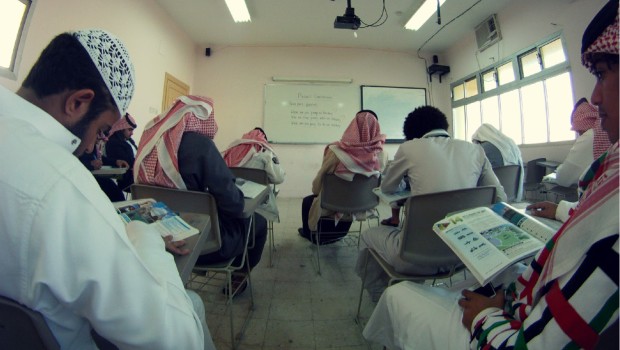Islam: The crisis within – by Ishfaq Ilahi Choudhury
The Islamic world today is faced with extreme violence and conflict that is a danger to global peace and harmony. Countries such as Somalia, Afghanistan, Syria, Iraq, Libya and Yemen are topping the list of states most likely to fail. Absence of governance in many Muslim countries has provided a fertile ground for the rise of religious extremists who in their purported desire to establish an Islamic state have unleashed a reign of terror. In Afghanistan and Pakistan, Taliban forces are fighting to establish what they call an Islamic Caliphate. There is a long running conflict within Pakistan between the Shias and Sunnis and both sides have armed cadres engaged in brutal killing of each other. In Yemen, the government is facing dual onslaught, one from the Sunni hardliners close to the al-Qaeda, and the other from the Shia tribes who want a return of the Shia Imamate. In Iraq and Syria, the news of the civil war is dominated by the rise of Islamic State of Iraq and Syria (ISIS) that now calls itself simply as Islamic State (IS). Their declaration of the so-called Islamic Caliphate in the region has given a boost to Islamist forces who for years were calling for the return of the Caliphate. IS has been branded by the world community, including the UN, as a terrorist outfit that uses extreme violence, torture, mass conversion, rape and plunder to coerce obedience from the people living in its area of control.
Islamic extremists flourished not only in the countries where democratic pluralism was absent, but they made inroads also into open, democratic, multi-cultural societies in the West. In fact, extremists used the openness of the society and its democratic order to operate freely, and induct new recruits into their fold. Thus, we see a rush of new recruits from the West joining the global jihad. Besides the children of Muslim migrants of Afro-Asian origin, newly-converted white young men, and even women, are joining the jihad. Despite their avowed goal of carrying out jihad against the infidels, they are actually operating in Muslim majority countries, killing ordinary Muslims and trying to destabilise the existing governments. Although they claim to be fighting against Zionist and Crusader forces of the West, they have not been able to launch any attack on western or Israeli targets for nearly a decade. At the same time, hundreds of thousands of fellow Muslims have been killed, their properties destroyed and their women violated — all in the name of jihad. While the vast majority of Muslims had remained passive onlookers, a miniscule group of religious extremists have occupied the centre stage. As a result, Islam is becoming synonymous with violence and terror to the non-Muslims around the world. “Islam is a religion of peace” is a cliché to many.
The violence within the Islamic world can be traced back to the increasingly exclusive and literal interpretation of the Quran by the Wahabi School in Saudi Arabia. In South Asia, we have the Deobandi School emanating from Dar-ul-Ulum Madrassa in Deoband, India whose interpretation of Islamic traditions closely follows the Wahabi school. These schools, both rooted in Sunni traditions, declared most of the Shia traditions as heretic, thus triggering large-scale violence in countries such as Pakistan, Iraq or Syria, where there are mixed Muslim population.
While Muslims are falling behind others in the field of science and technology, the extremist forces target whatever is left of modern educational institutions in their countries. They bomb and destroy schools, kill or kidnap the students, especially female students. The only schools allowed by them are the Madrassas that teach as per their doctrine. We saw their anti-school operations in Pakistan. Boko Haram, a Sunni extremist outfit in Nigeria, have systematically destroyed schools, killed, kidnapped, raped and sold into slavery hundreds of female students, mostly Christians. All these have resulted in millions of young Muslims growing up uneducated or ill-educated, unable to find jobs in a highly competitive world. They end up in a state of hopelessness and become target of jihadi recruiters. Thus, the Islamic world is caught in a spiraling crisis from where getting out is becoming increasingly difficult.
What is the way out then? Fareed Zakaria, an internationally renowned journalist, pointed out that Islam has a problem, for now. The longer we live in a state of denial, more the cancer of extremism spread inside us. The majority must take action to free Islam from the grip of the hijackers. The IS, al-Qaeda, Boko Haram, al-Shahab, LeT, Taliban and other terrorist organisations are dragging the Islamic community into the heart of darkness. The prime need of the hour is to join forces to fight extremists wherever they may be.
Now that we have a UN Resolution against IS, countries such as Turkey, Egypt, Pakistan, Indonesia and Bangladesh can join forces with others to attack and destroy the evil forces. Similarly, we need to address the Taliban issue after the US withdrawal. Pakistan and Afghanistan must recognise that there is a common enemy, the Taliban, waiting outside the gate. Only a joint, coordinated military effort can destroy the Taliban. Any one side trying to use the Taliban to destabilise the other will, in the end, be the loser. While security operation is essential to stop the advance of the extremist forces, a long-term social, political and economic programme is needed to deny the extremists space to grow and take roots. Education that produces technically proficient, socially adaptable and morally sound world citizens is the best antidote. In the end, the Islamic world must come up with an ideological alternative that successfully challenges the extremist world view. Unfortunately, I do not see that happening in the short term. If we do not wake up to the challenge, we may soon be knocked out.
Source:
http://www.thedailystar.net/islam-the-crisis-within-47967

